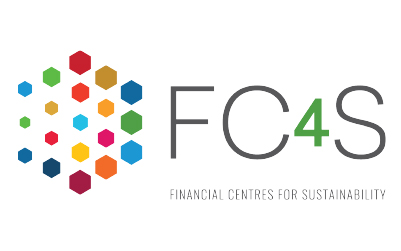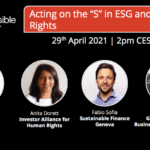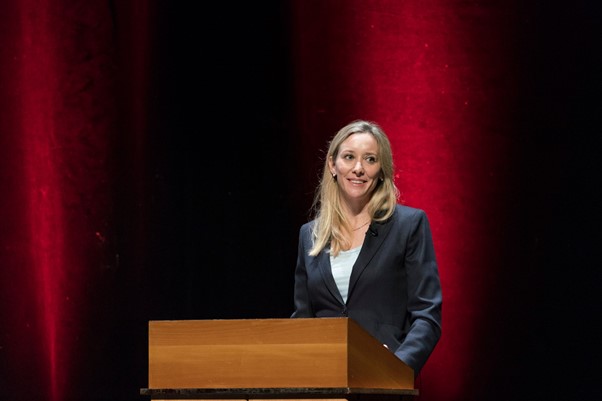
Mark Halle – connecting financial centres
Sustainable Finance Geneva (SFG) was established to improve the alignment between financial activity and the requirements of sustainable development. At the time, sustainable finance was seen as a niche concern, catering to a refined market in search of impact.
Those days are past, as financial actors scramble to demonstrate their attachment to established environment, social and governance (ESG) principles and line up to contribute to the fight against climate change and, increasingly, biodiversity loss. Further, these financial players are grouping together to offer customers a range of sustainable products across the entire spectrum of financial activity.
The Geneva financial community has begun to take advantage of its unique selling proposition – the presence of a startling range of international organizations focused on the achievement of the Sustainable Development Goals. Centred around the “Building Bridges Week”, Geneva is seeking to make its international character a competitive advantage in promoting itself as a financial centre dedicated to the sustainable finance transition.
Competition increasingly requires not just a few successful innovation leaders, but the alignment of the entire community behind the shared goal of advancing sustainable development through the activities of financial and capital markets. And where better to advance that process than in the world’s leading financial centres?
Indeed, a focus on financial centres overcomes the scattered nature of financial actors, and their tendency to operate in sectoral silos. Bankers rarely interact with pension funds, nor insurances with investors. In line with Michael Porter’s theory of clusters and the new economics of competition, it is the grouping of the range of financial actors in one place that not only accelerates innovation, but speeds the uptake of new practices, new ideas and new technologies.
Italy was among the first countries to recognize the particular value of financial centres as motors of progress. During their G7 Presidency in 2017, they asked the UN to gather the leading financial centres of the seven member States to gauge the interest in organized collaboration around the sustainable finance transition. The communiqué from the June 2017 Environment Ministers’ summit in Bologna called for a new network of financial centres dedicated to the alignment of financial centres to the needs of the real economy. They also called for the network to go beyond the G7 community to embrace financial centres around the world.
A founding meeting in Casablanca in September 2017 gathered 14 financial centres and called for the establishment of the international network of Financial Centres for Sustainability. This network was formally launched in December of that year during the Paris Climate Days. Geneva and Zurich were among the founding members. Since 2018, the Secretariat of FC4S has been established in Geneva.
In the intervening years, FC4S has gathered significant momentum (see: https://www.fc4s.org/). At the time of writing, FC4S has a membership of 35 financial centres (cities or city-states) in every part of the globe. Together they represent over 85% of all bonds and equities traded. With the recruitment of a handful of other key centres, this figure could rise over 90%. The programme of work ranges across a wide spectrum of activities, including benchmarking and taxonomy, development of sustainable finance roadmaps, best practice guidance, capacity building and technical assistance, and promotion of partnerships.
How can Geneva benefit from its privileged position as host of FC4S? There are at least three ways:
It can build its global profile as a “green” financial centre through an active campaign of information and exchange with the other centres in the network, participating in FC4S’ wide range of activities and drawing attention to the unique advantages of Geneva as a financial centre dedicated to sustainable development.
It can draw from the activities and experience of the other financial centres – their successes as well as their failures – to further develop the depth and range of Geneva’s offering in the field of sustainable finance.
Finally, it can establish a series of partnerships with financial centres in the developing world and emerging economies better to link Geneva’s international assets with the needs of the partner financial centres.
Geneva hosts a key player in the global transition to sustainable finance. It is time it took full advantage of this.



